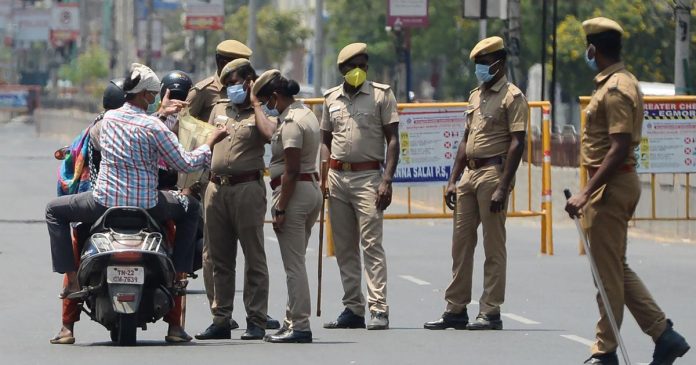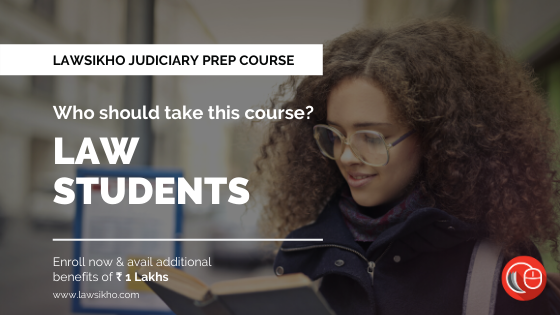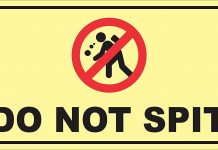This article is written by Rohit Raj, a student currently pursuing B.A.L.L.B.(Hons.) from Lloyd Law College. This is an exhaustive article which deals with the Police action against the people who venture out during lockdown situations and deals with the legality and limitation of Police action.
“When you have Police officers who abuse citizens, you erode public confidence in law enforcement. That makes the job of good police officers unsafe.”
— Mary Frances Berry
Table of Contents
Introduction
If you really want to hear about how Police are beating up people who venture out during lockdown with any reason and whether this action is legal and fair action or not then this article will help you in clearing down the concept of legality and actions of police during the lockdown.
In this whole article, we shall learn about the powers of Police during the lockdown and how it is being abused, rather than helping people out.
After dealing with the legality and different powers conferred to the police during the lockdown, several cases were dealt and analyzed to know the circumstances where people were denied access without any appropriate reason.
Powers of police during the lockdown
During the period of lockdown, People are not allowed to move freely in the locality and it is the duty of the police to ensure that people remain inside their houses. There is nothing new about lockdown, it keeps happening for various reasons in a country like India.
If we take the lockdown in the context “COVID-19” then, the Police during the coronavirus lockdown were instructed to provide a consistent service and help the community whenever they need help while performing the sovereign function. Police during the performance of sovereign function maintain an intrigued and interrogating mind while dealing with the people who were wandering outside the house due to any reason whether the reason is genuine or not.
Police were engaged in performing absolute functions as they have been empowered with many functions to make people stay in the house with the use of their allocated power. Police during lockdown can restrict any person from venturing out during lockdown time and can also use force on people and they can beat people who venture out in lockdown without any appropriate or proper reason and moving unnecessarily. The beating of people in these conditions is suitable till when it is in the limit and when it crosses the limit of exercising or using force, then it clearly indicates the misuse of sovereign power.
Power of police is also mentioned under the Code of Criminal Procedure and this can be seen during a lockdown of this coronavirus. Code of Criminal Procedure mentioned the power of the police. Police can book any individual who is found breaking and misusing the law which is applicable in this lockdown period.
Legality of action of police to beat up anyone who ventures out for any reason during a lockdown
Various cases across India where people were denied access without a proper reason
In India, there are a lot of cases where people were denied access without a proper cause and due to which people suffer in their day to day life. Before going to the case, the question arises of legality of Police action whether the action of the police is within the legal framework or not? Or we can say whether the police action is legal or not.
The action of the police is totally legal if they also use force but in a limit not extending limit like the police does in Kolkata. The sovereign function is totally legal and fair but to a certain limit and when that limit is being crossed in sovereign function then that act will be considered illegal.
If we look at the recent news related to India v. Pakistan (Kulbhusan Jadhav), then India requested for consular access but the Pakistani military court refused to grant consular access without giving any or proper reason for the refusal of the consular access. This clearly shows how people were denied their access without giving any proper reason and this example is taken as a help or as a reference how it is being done in the current scenario.
Mohini Jain v. State of Karnataka, a 1989 Supreme Court of India case, occurs when the Government of Karnataka issued a notification which permitted the charging of extra tuition fees from the students only who come through ‘Government seat quota’. And this decision was challenged by Mohini Jain who is a medical aspirant student and challenged before the Supreme court where the court raised a question that “whether right to education is guaranteed to the Indian citizen under the Constitution of India.” And in this case, the Supreme Court held that the right to education should be read as an integral part of the right to life which is guaranteed under Article 21 of the Indian Constitution.
Swapnil Tripathi v. Supreme Court of India, this is considered as a landmark case and in this case, a fourth-year law student filed a plea in the Supreme Court to make the court proceeding live in the interest of the public so that public especially law students and younger advocates can be benefited from the live telecast of court proceedings. The Supreme Court held that the ability to view live broadcast of proceedings of court which flowed from the right to access to justice in the constitution, but said that this right should not be absolutely provided certain guidelines and it is on the discretion of the court when the live broadcast of proceedings will be done.
All these cases and also Kulbhushan Jadhav case shows how the denial of access was made without giving a proper reason that it should be denied on this basis. This absence of proper reason while denying the access shows the loophole of the Judiciary system. And this loophole is carried out by the Judiciary in its many judgments.
Abuse of powers
The question arises of legality whether the action of the police is within the legal framework or not? Government is not exceeding or performing any action exceeding the authority than they have been provided with. If we look for the provisions and what are the charges and punishment defined for venturing during lockdown without any proper reason then we came to know some of the provisions of law which book individuals under the provision of law:
- Section 188 IPC, Violation of any order which is passed by the government in order of public interest.
- Section 269 IPC, Negligently doing any act in order to spread the disease in the community.
- Section 270 IPC, Doing any act maliciously knowing that it is more likely to be spread infection of any disease.
- Section 271 IPC, knowingly disobeying the rules of the quarantine period and lockdown also leads to book individuals under this provision.
And, Police is only exercising their power as per the provisions which have been mentioned and act as per the order of legislative and Judiciary body. But on the other side of the same coin some policemen exercising extra power under the name of sovereign function.
Powers were conferred to the police not for suppressing people in this quarantine and lockdown period but to provide help and utmost support to the people so that they all can face this lockdown period easily without getting any harm. If we see the example of that Kolkata case during this coronavirus lockdown, then in that the police beat that person who is going to take milk only not for any other purpose and not creating any other mischief on the road but under the name of the sovereign function and beat that person so much that the people died there only which is so shameful for the police department.
Is the use of force justified?
After analysing the cases and legality of the police action in detail, now we are going to look over the violence created by the police during the lockdown and quarantine period and why the action of the police is considered as violent under the name of sovereign function.
During the lockdown time when any person for any reason is out of the house, then some police is showing his cruelty and all his anger on that person without knowing the specific reason behind his breaking of quarantine and their brutality sometimes leads to death of that person like the Kolkata case of the milkman. As for the clear picture, a zomato delivery boy was beaten with brutality for delivering the order in lockdown which is a clear misuse of their sovereign power and their act is totally against the sovereign function.
Police have to leave the people out for essential needs
During the lockdown period, all the shops were closed and also the people weren’t allowed to come out of their house and if they did so it would be in violation with the law and also be booked for punishment under many different provisions.
Essential goods are always necessary for all people to have it and at the time of duration, people need it to survive and as police were showing their brutal behaviour and beating up an individuals who comes out for the purpose of buying essential goods for their family so that they can eat and survive in this quarantine and lockdown time due to this people is being scared from the police action and lockdown them without even eating which finally paves way to death of person which is totally immoral and also not correct from the view of law. Police should leave the people out only for the essential needs so that they can fulfill their essential needs which is very much important to be fulfilled.
Police can do so that they can check the bill of the purchased commodities when they will return after buying and this way police can control the person coming out for unnecessary reasons during this quarantine period.
Duty to protect the citizens, not to abuse their powers
Police and police function is considered as a sovereign function and any act performed under sovereign function will not be considered wrong and the police will not be liable but the function should be fair and within the limit prescribed for discharging sovereign function.
Police is a part of the society and police has a responsibility as well as a duty towards the common people and duty to protect the citizens and serve the society not to suppress the common people and misuse their power and torture and make people their enemy.
Police have also been conferred with power under several provisions to serve the people and each individual in every circumstance whatever the situation is and in no condition police will be biased towards any particular person as per the noted provisions like – Article 14 (Right to Equality) means every person should be treated equally irrespective of gender, caste, colour, race, status etc.
Conclusion
Is it legal for police to beat the people who venture out with any reason during a lockdown? This topic in itself is showing both aspects i.e. Moral and legal. Actions of police and allowing them during lockdown to buy essential commodities respectively shows moral and legal values. The Police System from the very beginning is considered as a most important element of the society which helps in society regulation and security of each individual of the society with a formal prescribed way of handling and running the society.
According to my assumption, the power of police should be more exercised in the locality or society but with much greater control over the exercise of their sovereign power and discharge of sovereign function. As like everything has its two sides, Police has also two faces i.e. one who helps an individual and performs their duty in the interest of people and one who misuse their power to suppress the common people and always use coercion on people. Due to these, the whole police system is considered as corrupt and an enemy of people. So, to change the mindset of people, greater control over police was needed and if any police were using their discretion and violated some rules under the name of discharging sovereign function then that police should be booked for punishment under some provisions of law.
References
- Kulbhushan Jadhav, The Economics Times, (2020), [online], Available at: https://economictimes.indiatimes.com/topic/Kulbhushan-Jadhav [ Accessed on 2nd April, 2020].
- Mohini Jain v. State of Karnataka, ESCR-Net, [online], Available at: https://www.escr-net.org/caselaw/2009/mohini-jain-v-state-karnataka-1992-air-1858 [Accessed on 2nd April, 2020].
- Swapnil Tripathi v. Supreme Court of India, Global Freedom of Expression, (2018), [online], Available at: https://globalfreedomofexpression.columbia.edu/cases/tripathi-v-supreme-court-india/ [Accessed on 2nd April, 2020].
LawSikho has created a telegram group for exchanging legal knowledge, referrals and various opportunities. You can click on this link and join:
https://t.me/joinchat/J_0YrBa4IBSHdpuTfQO_sA
Follow us on Instagram and subscribe to our YouTube channel for more amazing legal content.
 Serato DJ Crack 2025Serato DJ PRO Crack
Serato DJ Crack 2025Serato DJ PRO Crack











 Allow notifications
Allow notifications


